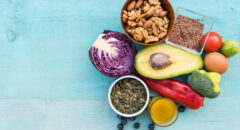kombu in a large stockpot.
Fill the pot with water and bring to a boil. Reduce heat and simmer on low heat for 24 hours.
Remove from heat and let cool. To strain broth, place a fine mesh strainer over a large pot or bowl and carefully pour contents of stockpot over the strainer.
2. Alkaline Citrus Nectar
According to many experts, diseases cannot exist in an alkaline environment and begin to occur when your body becomes too acidic.
By following a diet that is rich in alkaline foods, many have seen a restoration of their body’s natural alkaline state, resulting in mucus leaving and detoxifying your diseased body. Here’s a quick recipe:
“No-cold” Nectar
Ingredients:
– 2 cups daikon radish
– 2 cups dark kale
– 1 cup black radish
– 1 large bunch of dill
– 4 large carrots
– 4 oranges, peeled
– 1 lemon, peeled
– 1 inch fresh ginger root
Directions:
Run all of the ingredients through a juicer and enjoy immediately (or store in the fridge for no longer than 4 hours).
1. Root Tea
While licorice might not be your first choice as a candy treat (yuck), it can help with your phlem. Licorice root has been long been used in traditional medicine for a variety of conditions, including coughs, infections, and digestive problems.
StudiesTrusted Source has indicated that licorice may be effective at stopping the growth of several species of bacteria, fungi, and even some viruses. It also appears to haveTrusted Source both anti-inflammatory and antioxidant properties.
Additionally, a study in mice found that components in licorice could decrease cough frequency by between 30 and 78 percentTrusted Source. The study also found that the licorice compounds can act as expectorants, which may help loosen up mucus.
Pregnant women should avoid using licorice root. Also, keep in mind that consuming large quantities of licorice root can potentially cause high blood pressure or drops in potassium levels.








